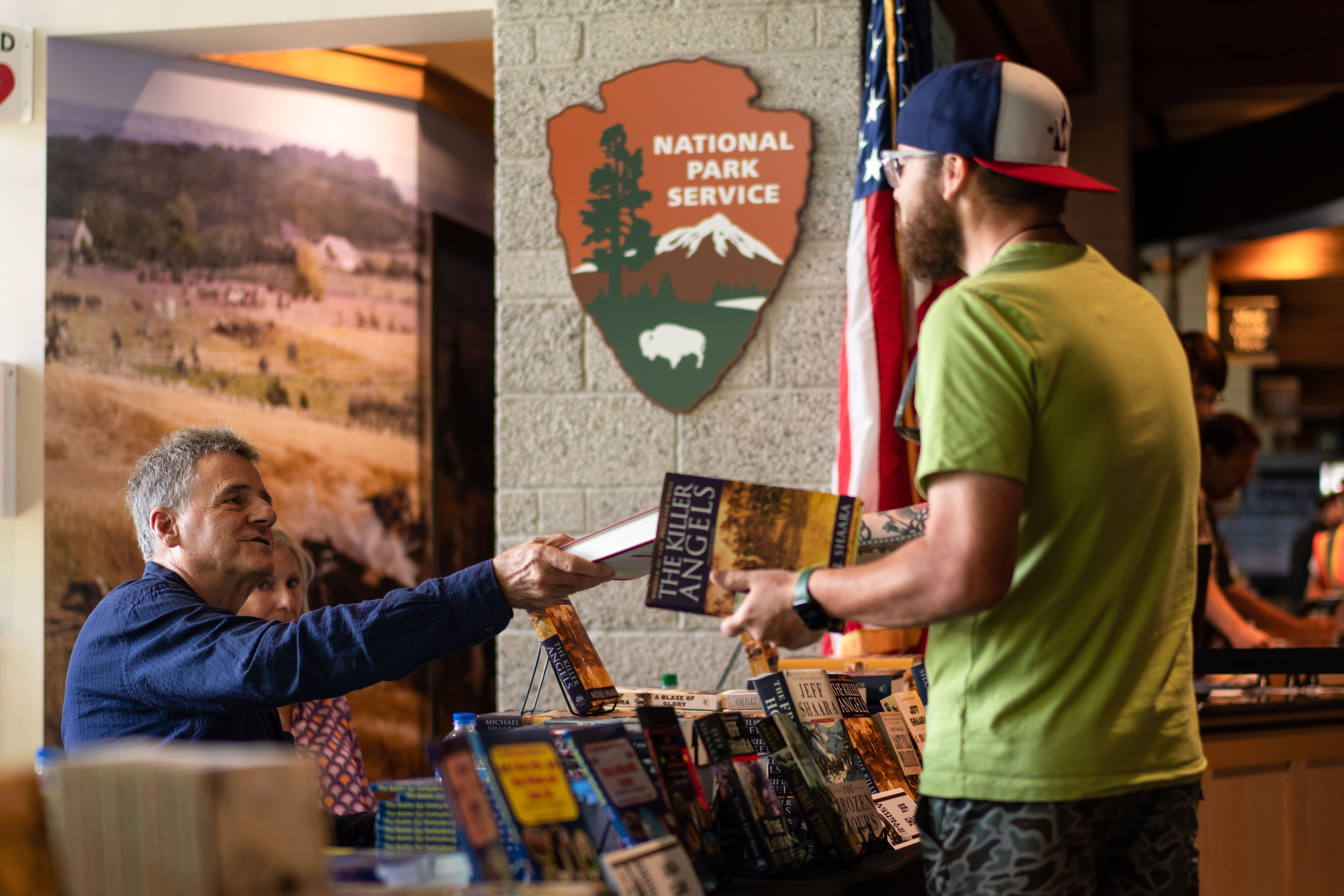The world will little note, nor long remember what we say here, but it can never forget what they did here.
President Abraham Lincoln
Gettysburg Address
November, 1863
During his Gettysburg Address, President Lincoln humbly acknowledged that his brief speech would not stand the test of time - that words alone could never compare to the actions of the men who nobly fought and died here.
However, his important words still resonate today. Gettysburg and Lincoln’s address continue to inspire new dialogues and thoughtful discussions.
Sacred Trust Talks & Book Signings
Co-sponsored by Gettysburg National Military Park and the Gettysburg Foundation, the annual Sacred Trust event takes place at the Gettyburg National Military Park Museum & Visitor Center and commemorates the anniversary of the Battle of Gettysburg with talks on various perspectives and topics related to the American Civil War.
Through a signature series of thought-provoking talks, Sacred Trust brings the lessons, teachings and inspiring stories of Gettysburg to today’s audiences in commemoration of the anniversary of the 1863 battle.
Sacred Trust hosts select authors of Civil War and Battle of Gettysburg titles for book signings. Books are available for purchase during the signings.

Sacred Trust Talks & Book Signings

Thank you to those who were able to join us in the Museum & Visitor Center for this commemorative programming during the evenings of the 162nd Anniversary of the Battle of Gettysburg.
Video releases of the 2025 programs are now available on our YouTube channel.
